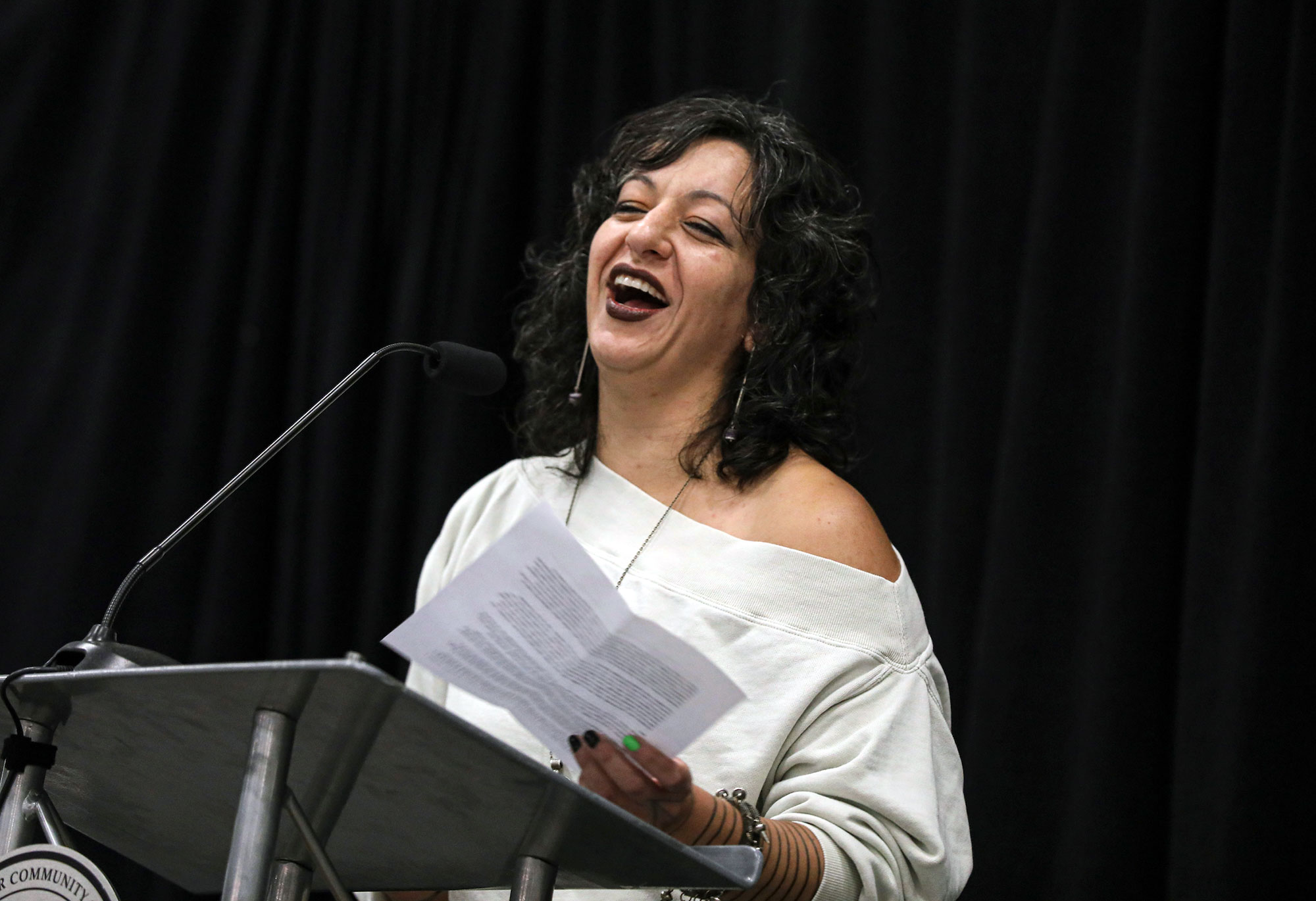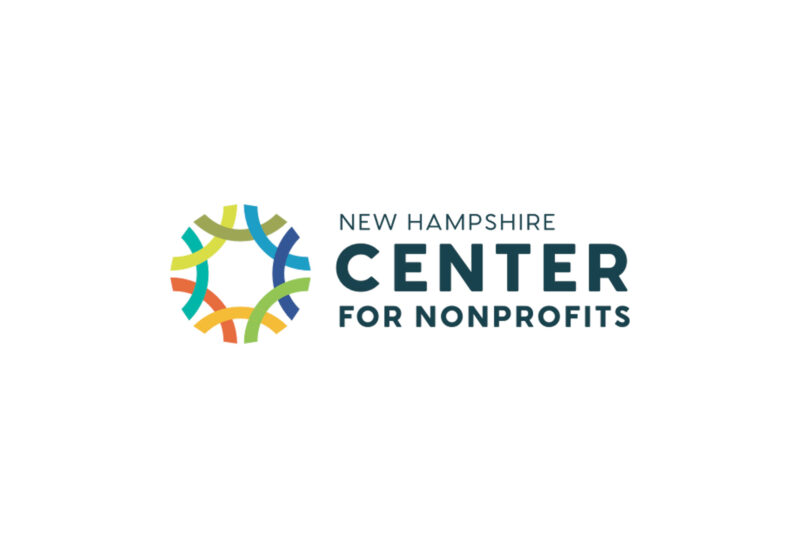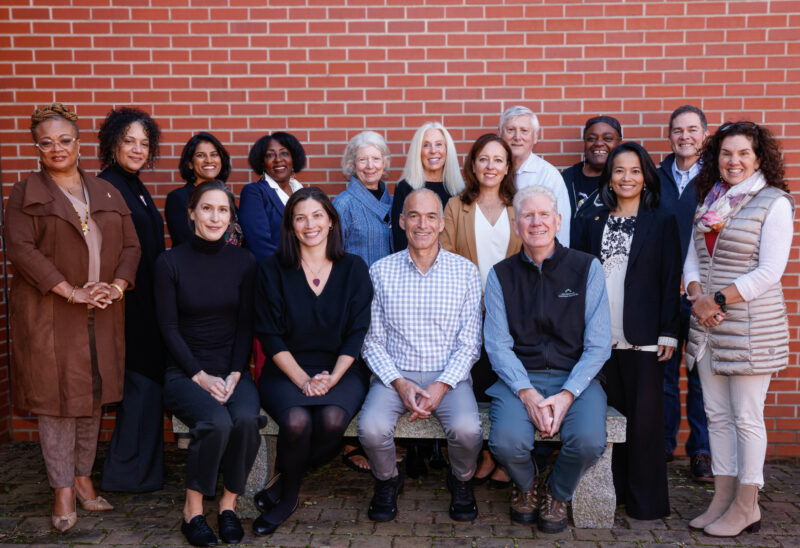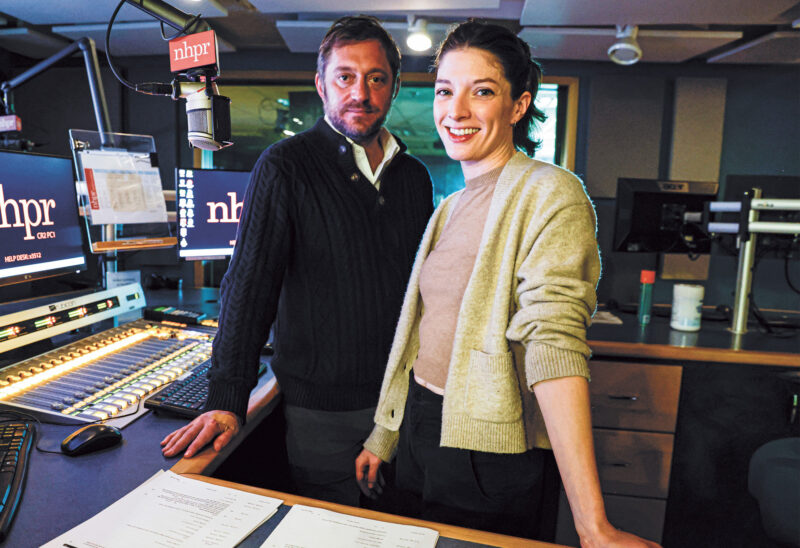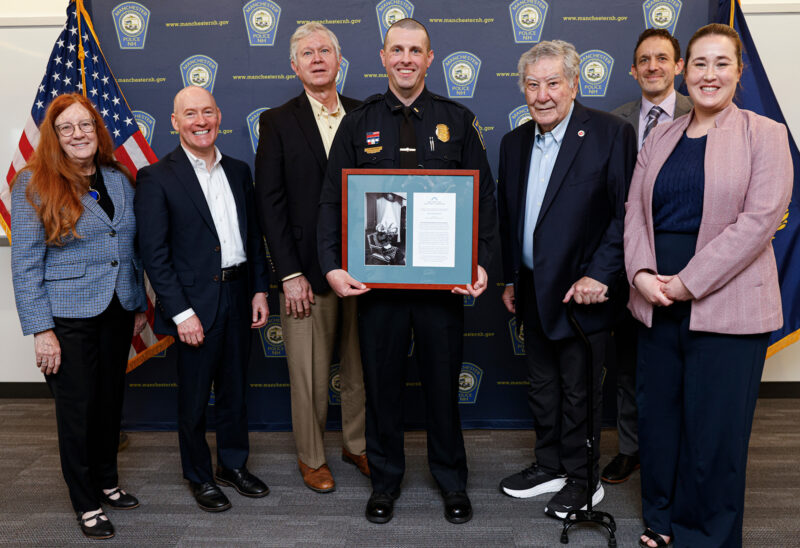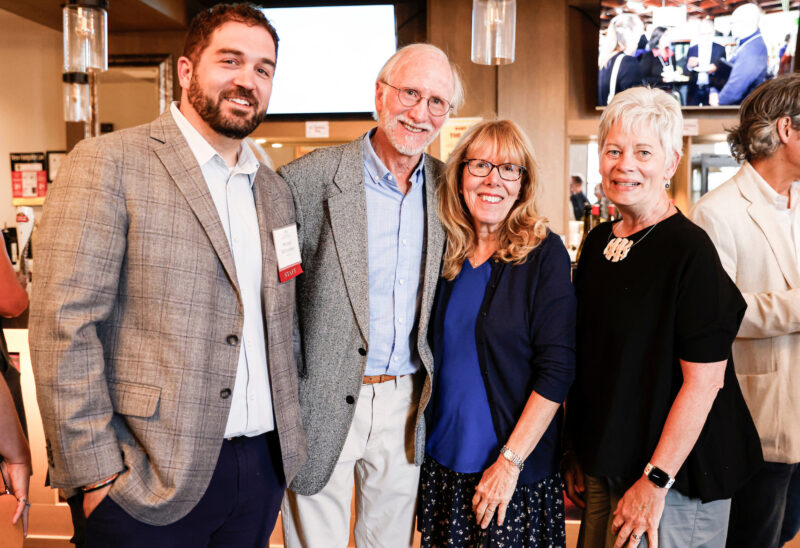Yasamin Safarzadeh of Kimball Jenkins spoke at a Charitable Foundation community event in Manchester in September. A transcript of her remarks follows.
My name is Yasamin Safarzadeh. I am head curator and program director at Kimball Jenkins. I am an artist, an advocate.
I don’t often showcase my personal stories of triumph and those low moments that make me question the value of my life. I know that the culture of New Hampshire is one of resilience and one of stoicism. But I’m going to take a few minutes today to become vulnerable to you, and work my way through what I’ve noted to be the humanity of the New Hampshire Charitable Foundation and its work.
I believe that a profound endeavor we can make individually to our youth and therefore the future of this state is in choosing the model of mentorship. In its most overlooked sense, it will be uncompensated, it will be messy, and it will challenge your values. Yet without this model, I would never have had the opportunity to claw my way out of some of the most harrowing, Hollywood, absurd, destabilizing, circumstances conceivable. One such mentor to me is a woman named Christina D’Allessandro.
Christina, if you don’t know, is many things, and at the time that I met her she had not yet begun her work with the Charitable Foundation. I had met her through some of my early civil servant work and knew that there was something unique about her that I wanted to glean. I’m sure she has many, but at that moment in time I became a devout Christina D’Allessandro fangirl.
A year later, it was the height of the pandemic, and the true colors of both people and organizations had begun to rear their heads. I had suffered an incredibly traumatizing job loss, was on supplemental housing and food vouchers, and I was driving rich people’s compost from Rhode Island, through Massachusetts and New Hampshire, and to abandoned warehouses for 14 hours a day.
Christina and I periodically take tea or coffee with each other, and upon one such occasion, she offered me a job. To merely collect people’s stories, and then to celebrate the endeavor in an event which centered and amplified underrepresented voices. To this day I believe she knew what she was doing, although I had no clue what the impact of this work meant to me. She paid me the highest hourly rate I had ever been paid, $37 an hour, and she made me feel like I had something to contribute and that that something was valuable. I am so thankful that I can continue to work with Christina in the new iterations of our careers. Her at the Charitable Foundation and myself at Kimball Jenkins.
Kimball Jenkins, where I call home now, is a community arts center which utilizes the tools of the creative economy to foster healing and growth for New Hampshire in order to secure a more inclusive and fulfilling future for our peoples. Enmeshed in collaboration, daring true and challenging innovation and intentional programming, we are redefining what the arts can truly do for our neighborhoods. I have been privileged to build this model with my coworkers under the fearless leadership of Julianne Gadoury. And now too, I have my mentees, one of whom is here today, Amara Phelps, who will take my place and do it better, who is an incredible individual and I have no idea how I got to be so lucky to have her in my life. During the last four weeks of recovery from a severe brain injury she has been with me, transcribing and editing my oration. This very speech is her fault!
Throughout all this time, though — to get back to Christina — she has continued to watch me grow, from somebody who can curate impactful and enriching public events to somebody who can throw impactful and enriching public events with some sick budget sheets and grant language. And yet, this is the humanity of which I hinted at earlier. The Charitable Foundation, more than any other grantor, understands that measurements of success do not look like sick budget sheets and grant language. They understand that for the diverse communities they serve, success has a drastically different look and feel. They understand that barriers of entry must be acknowledged and overcome by both parties involved and that in order to alleviate the symptoms of gatekeeping, they have to learn from this diverse community how to operate and how to best serve our state.
A key indicator of this evolution in responsible grantorship is the presence of New Hampshire Charitable Foundation employees and leaders in our community. Seana McDuffie, PERIOD. Seana has attended nearly every single Kimball Jenkins event, has taken clowning classes with me under the tutelage of our artist in residence Gemma Soldati, and has come to West High School to see the magic unfolding on the grounds there. Sandeep Bikram Shah, another integral player at the New Hampshire Charitable Foundation, has shown his love, courtesy, and respect and brought his family to our events both on and offsite.
This is an ethical and invested methodology in those who benefit from the fiscal generosity of philanthropists and grantors which New Hampshire Charitable Foundation oversees and facilitates. In the two years I’ve been at Kimball Jenkins, the Charitable Foundation has been integral in the success of our programming for youth and young adults. This includes our summer camp, our internship with MyTurn, and our residency at the Waypoint Youth Resource Center. Being able to sustain mentorship models, which merely means vibing and fostering friendships with outcomes invested in the creative economy, and teaching life skills through the guise of art-making in spaces often under-resourced and negatively stigmatized.
This is my favorite thing. To be paid to do what not only am I good at, but also what I love; and to be able to do that with people that I not only respect but I am able to learn from. To be able to share these opportunities with others and uplift other individuals to have the platforms that I do speaks volumes to the success of the New Hampshire Charitable Foundation and their ability to identify and foster people, organizations, and endeavors which directly benefit the health of our state and the future of our people.

